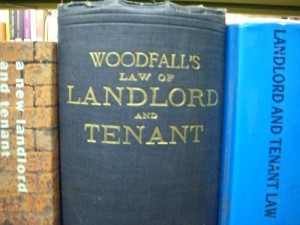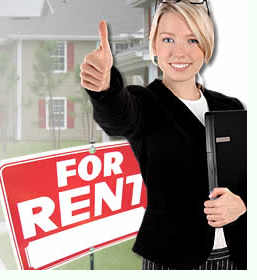Posted by Teresa on February 9, 2011 under Housing Trends | 
 Arizona state lawmakers have approved to send to the full state Senate a new law requiring landlords and tenants to share responsibility for bedbugs in rental units. Here’s how the proposed law shakes out:
Arizona state lawmakers have approved to send to the full state Senate a new law requiring landlords and tenants to share responsibility for bedbugs in rental units. Here’s how the proposed law shakes out:
Rental property owners will be required to:
- Keep their units free of bedbugs.
- Provide tenants a copy of the law, once passed, as well as with educational materials on bedbugs, including prevention and control measures.
- Arrange for a licensed pest control company to inspect a unit within seven business days of a possible bedbug problem.
- Start the process of mitigating the bedbugs in the rental unit within seven days of finding evidence of infestation.
Tenants are responsible for:
- Notifying landlords in writing or via electronic document of infestations.
- Providing access to their units for inspection and bedbug treatment.
- Complying with the bedbug mitigation protocol established by the pest control company is required. This includes pre- and post-treatment procedures, temporary evacuation of the unit and notifying within three days of recurrence.
Additional Requirements:
- Landlords are prohibited from knowingly leasing a bedbug-infested rental unit.
- Tenants are prohibited from moving bedbug infested materials into a rental unit.
- Only licensed pest control applicators would be allowed to treat bedbugs in multifamily housing.
- Tenants must receive written notification of mitigation treatment three business days or more before it begins.
Perhaps most important is the allocation of financial responsibility. According to the bill, while the landlord is responsible for pest control expenses when tenants comply with their obligations, the responsibility falls to a tenant if they fail to comply. In this case, not only are tenants responsible for mitigating the problem in their own unit, but also any surrounding units that become infested due to non-compliance.
This bill is one of the first we’ve seen that tackles the bedbug problem in rental units. And, it seems to be pretty fair to landlords. What do you think?
We’ll follow the bill as it progresses through the Arizona state Senate.
Posted by Teresa on February 1, 2011 under Landlord Tips | 

Abandonment is a tricky situation for landlords. It may seem pretty straightforward that abandonment has occurred when a tenant moves furniture and other possessions out of a rental property, hasn’t been seen by the neighbors in a several weeks, and doesn’t return messages—but the law may see it differently.
It’s best to check with a lawyer for the specific laws in your state. But when can a landlord consider a rental unit abandoned, and therefore prepare it to be leased to a new tenant?
Laws vary by state and locality, but here are some general guidelines for landlords:
- A unit could be considered abandoned when the tenant owes rent and has left evidence of abandonment, such as removing furniture and clothing, along with personal care and other items. Again, it depends on the state.
- If the tenant’s rent is current, the unit is not usually considered abandoned, even if the furniture and other possessions have been removed,. You do not want to rent the unit to another tenant, only to see the original tenant return. Wait until the end of the rental period that has been paid before attempting to turn over the unit.
- Cumulative signs, such as a tenant informing the landlord or neighbors that they planned to leave, along with a large amount of uncollected mail, removing all the furniture, and turning off the utilities, could be considered evidence of abandonment.
- Most landlords know to make reasonable efforts to contact the tenant. Telephone calls and emails may be the first methods, but it’s always a good idea to send a certified letter. Make sure to keep copies of letters and notes regarding dates and times of calls and emails.
- If the tenant appears to be gone and didn’t turn in the keys to the rental unit, don’t automatically change the locks. Again, you must first determine whether abandonment has occurred under the laws of your state.
- Tenant property is another area protected by the law. Don’t dispose of a tenant’s property, even if it appears they abandoned it, without checking your local and state laws. Some states allow 30 days for the tenant to claim the property; others allow six months.
It may not seem fair that when abandonment by a tenant occurs, the landlord is responsible for cleaning up the rental unit, gathering all the left-behind property and storing it for the tenant. Fair or not, it’s often the case—and just another part of being a rental property owner!
Posted by Teresa on January 29, 2011 under Landlord Tips | 
 Landlords are generally responsible by law to provide sufficient heating for tenants—so what happens when the utility company is getting ready to shut off the heat in one of your units? Most leases cover who’s responsible for utilities; some pay their tenants’ landlords utilities, while others require tenants to set up their own accounts with utility providers.
Landlords are generally responsible by law to provide sufficient heating for tenants—so what happens when the utility company is getting ready to shut off the heat in one of your units? Most leases cover who’s responsible for utilities; some pay their tenants’ landlords utilities, while others require tenants to set up their own accounts with utility providers.
Most landlords are concerned for their tenants’ well-being, but of must also think of potential property damage that can be caused when a unit goes without heat in the middle of winter, like freezing and bursting pipes, and water damage.
Here are a few general answers to the question, “What can I do if my tenant’s heat is cut off?”
When in doubt about legal questions, check with your legal advisor. This blog is not intended to be a source of legal advice.
1. Landlords are not responsible for a tenant’s legal or financial obligations. If they are required by the lease to keep heat on in the unit, and they fail to pay the bill until the utility is forced to terminate service, they are responsible.
2. Your tenant is also responsible for subsequent damage to your property as a result of their negligence. While it may seem like adding insult to injury, it’s simply the consequence of the tenant breaking a legal agreement.
3. Prevention is the key. You do not want to find out about a tenant with utility issues from the downstairs tenant, who calls to report water dripping through the ceiling. Make arrangements with the utility company that any service shut-off notifications are sent to you.
4. Take another look at your lease agreement. Be sure that it states that heat is required in the unit to protect pipes, etc. from damage, and that failure to heat the unit is cause for eviction.
Don’t allow a simple lack of preparation to cause unnecessary damage to your rental property. Make sure you know what’s going on with your tenants and set up notifications with the utility companies that service your properties.
Posted by Teresa on January 19, 2011 under Landlord Tips | 
 The business of renting property is never perfect. It can be tough. Sometimes, it can be really tough. But today we’re going to focus on what landlords can do to make their properties better places to live. And who knows? These efforts can pay off in happier tenants, longer leases, and higher-quality applicants.
The business of renting property is never perfect. It can be tough. Sometimes, it can be really tough. But today we’re going to focus on what landlords can do to make their properties better places to live. And who knows? These efforts can pay off in happier tenants, longer leases, and higher-quality applicants.
- Your rental property is kid- and pet-friendly. While this doesn’t work for every property, it does make things easier for parents of two-and four-legged kids. Provide and enforce clear-cut rules, along with designated areas for kids to play and dogs to do their business, and you can make nearly everyone happy—even your tenants who prefer to keep rugrats and furballs at arm’s length.
- Your rental property is fun. Creating positive interactions between residents, through potluck dinners, book and movie exchanges, a game room, or picnics can go a long way toward creating a community. People who know their neighbors feel more safe—and are more willing to look out for each other.
- Your rental property is welcoming. While it is the law that you do not discriminate on the basis of race, religion, family status, disability, sex and other factors covered by the Fair Housing Act, you create quite a different feeling when you advertise that everyone is welcome. Print a statement of welcome to all people on your leases, add it to your signage and your advertisements, too.
- You provide excellent customer service. Great landlords remember that their tenants are their customers. Without them, there is no rental business. All landlords know the feeling of less-than-100% vacancy; try to keep it in mind when servicing your tenants.
- You strive to accommodate everyone. Providing closer parking for disabled is the law, but reserving a few close spaces for older tenants, who might not have an actual disability is just a nice thing to do. Providing secure storage for bicycles encourages their use, which is good for the planet and the health of your tenants.
- You treat your tenants with respect in every interaction and communication. Few people cannot tell when they’re being disrespected or on the receiving end of a condescending attitude. If showing respect is difficult for you, then leasing property might not be the best business to be in.
Being a great landlord is not just a nice way to conduct business—it IS good business! Happy tenants will stay longer, cause fewer problems and recommend your property to their friends, family and co-workers. Why not strive to be a great landlord?
Pre-screen all tenants as part of your standard application process. Background and credit checks will help ensure you rent to qualified tenants. For more landlord resources, including forms and information on tenant screening, turn to E-Renter.com.
Posted by Teresa on January 14, 2011 under Landlord Paperwork and Forms, Landlord Tips | 
 If you’re a landlord who is selling your rental property, here are some guidelines for notifying your tenants. Laws and regulations vary according the city and state where you live, so check yours for specifics.
If you’re a landlord who is selling your rental property, here are some guidelines for notifying your tenants. Laws and regulations vary according the city and state where you live, so check yours for specifics.
- Double-check your lease, which may or may not address the sale of the property. Many large apartment building change hands without the tenants knowing, but for single family residences, small buildings and duplexes, it’s more difficult to show and sell a property without tenants knowing something is going on.
- If a tenant asks what’s up, be honest. Reassure them that the new owner will welcome them as tenants. Do what you can to avoid losing any tenants before the sale is final.
- It’s not generally required that you notify tenants that the building is going on the market. However, if you need entry to a unit to show a potential buyer, follow the standard notification period you use before entering a tenant’s unit.
- Remember that happy tenants are a big selling point. Try to avoid numerous interruptions and make an attempt to accommodate the tenant’s schedule.
- Most questions you receive will be regarding security deposits. Let tenants know if you and the buyer decide to:
a. refund all security deposits so new owner can collect them anew;
b. transfer existing security deposits to the new owner.
- When the sale is completed, send a notification to each tenant with the effective date that you will no longer own the building or accept rent payments. Ideally, this would arrive at the same time as a letter from the new owner, directing tenants where and to whom to send rent payments.
- State laws vary, but in general, once the sale is completed, the new owner is obligated to honor all existing leases. Whether they do or not—or whether tenants wish to continue with the lease or not—is no longer your problem.
Posted by Teresa on January 9, 2011 under Landlord Paperwork and Forms, Landlord Tips | 
 Our previous post about a cop-calling tenant raised some additional questions from landlords:
Our previous post about a cop-calling tenant raised some additional questions from landlords:
Marilyn owns a duplex and lives in one unit. She rents the other unit to a tenant who confided in Marilyn that she is afraid that her ex-boyfriend was stalking her. The man was driving past the house several times a day, and the tenant had recently seen his car in the parking lots of the mall and grocery store where she had been shopping. She was worried, and wanted to let Marilyn know about his actions in case he became threatening.
Marilyn wants to protect her tenant and her property, but is rightfully concerned about getting too involved in the tenant’s situation. “I’m planning on calling the police if I ever see him near my property,” she said.
Police might recommend that Marilyn allow her tenant to take care of this problem directly, since the tenant is the legal resident of her unit. An attorney might say that Marilyn must take some sort of action to avoid being held responsible in the event a criminal action takes place against the tenant.
Encouraging a tenant who is being harassed to obtain a restraining order is certainly within a landlord’s area of responsibility. And as soon as Marilyn feels threatened by the ex-boyfriend, she too can seek a restraining order.
It is never a good idea to attempt any confrontation with a violent person. Stalking behavior is not acceptable behavior—it is a warning sign that should not be ignored. While it is understandable that Marilyn wants to protect her tenant and her property, it’s best to follow the law and let the police handle every confrontation with the ex-boyfriend.
Scott’s tenants were robbed soon after they moved into one of his apartment units. The thief took their TV, a computer, some cash and jewelry. The tenants claimed that Scott failed to protect them by providing proper door locks. Scott is curious about the limit of protection a landlord owes his tenants in this situation.
Robberies happen every day, in every level of neighborhood in America. A landlord cannot prevent a criminal who really wants to get in from entering a rental unit. However, solid locks on the entry doors and windows are necessary, and if your rental properties are lacking them, now is a good time to remedy that situation—before a robbery or something worse happens.
To avoid any question of liability, every rental agreement should include a clause requiring tenants to purchase renter’s insurance. Further, it should explain that the landlord’s insurance does not cover theft of the renter’s contents. If a tenant does not carry required insurance, the landlord could move to eviction.
Pre-screen all tenants as part of your standard application process. Background and credit checks will help ensure you rent to qualified tenants. For more landlord resources, including forms and information on tenant screening, turn to E-Renter.com.
Posted by Teresa on January 4, 2011 under Landlord Tips, Tenant Screening & Background Checks | 
 We recently heard from Jason, a fairly new landlord, regarding a common problem: a tenant who calls the police—a lot. “I did my due diligence and ran a tenant background check and criminal screening on her, and she came through with flying colors. Unfortunately, I can’t say the same about some of her former friends,” Jason said.
We recently heard from Jason, a fairly new landlord, regarding a common problem: a tenant who calls the police—a lot. “I did my due diligence and ran a tenant background check and criminal screening on her, and she came through with flying colors. Unfortunately, I can’t say the same about some of her former friends,” Jason said.
After the tenant moved in, her former boyfriend started showing up, uninvited. She felt harassed and seemed to be unable to get him to leave on her own. “She calls the cops at least once a week,” said Jason. “It looks bad to the neighborhood and it concerns my other tenants. I’m thinking about evicting her.”
Jason was rightly concerned that he could be in violation of the law if he proceeded with eviction. He planned to contact his attorney to be sure. But what should a landlord do when an otherwise perfect tenant makes his or her personal problems a larger issue? If the tenant has done nothing wrong, is it fair to force her out?
One landlord said the best course is to encourage the tenant to seek a restraining order, or to refer the tenant to a domestic violence prevention center. Another mentioned that if the tenant is not an innocent victim, but rather calls the police for minor issues that the landlord or property manager should be handling, it could be more of a nuisance issue. In this case, eviction could be the proper recourse to allow other tenants quiet enjoyment of their homes.
Landlords cannot generally evict tenants when they are exercising their rights. And, it is certainly up to the management to control tenant actions when they affect others. Most landlords we talked to about Jason’s case indicated they would get involved in the situation in order to prevent a possible escalation of harassment. Obviously, confronting the ex-boyfriend is not a good idea, but helping the tenant seek a restraining order is much better than doing nothing. Evicting her would only compound the problem.
When you are a rental property owner, it is in your best interest and that of your tenants to provide a safe environment. This tenant’s calls to the police could be a wake-up call for the landlord to get involved. Remember, when it comes to bullies like this tenant’s ex-boyfriend, stay safe and let the police do their jobs!
Posted by Teresa on December 16, 2010 under Housing Trends, Landlord Tips | 
 A new study in Pediatrics suggests that children living in apartment buildings are at higher risk of exposure to passive smoke than children living in detached houses. Experts say that components of tobacco smoke that are harmful to children can seep through apartment walls, then be absorbed by furniture, curtains, clothing and carpet. This makes vulnerable children unable to avoid exposure.
A new study in Pediatrics suggests that children living in apartment buildings are at higher risk of exposure to passive smoke than children living in detached houses. Experts say that components of tobacco smoke that are harmful to children can seep through apartment walls, then be absorbed by furniture, curtains, clothing and carpet. This makes vulnerable children unable to avoid exposure.
The study focused on 5,000 children who live in smoke-free households, including detached houses, duplexes and apartment buildings. Researchers looked for cotinine, a product of nicotine and a highly sensitive marker for tobacco, in the children’s blood. The study found that overall, 73% of the kids were exposed to tobacco. Of children who live in apartment buildings, 84.5% had cotinine levels indicating tobacco exposure, while only 70.3% of children living in detached homes did. For children in semi-attached or duplex homes, the figure was 79.6%.
These numbers suggest that no matter where they live, children have no control over second-hand smoke. But in apartment buildings, the chance of exposure is much higher than for kids in detached homes. No matter who is smoking, even if they are in an apartment on the next floor or down the hall, the chemicals and carcinogens travel through ventilation systems, shared walls and ductwork.
Other findings were that tobacco contaminants were highest in children under 12, those who are black and those who live below the poverty level. While parental smoking is the most common source of secondhand smoke exposure, the new study shows that parents even the children of nonsmoking are exposed to these harmful substances.
While it’s too early to know what ramifications studies like this will have on legislation, it’s not too far outside the realm of possibility to imagine that rental property owners who allow smoking in their units could, at some point, be held responsible for damages to non-smokers’ health. In a perfect world, no one would be exposed to others’ harmful habits—especially children who have absolutely no choice in the matter. Until then, rental property owners can convert their properties to smoke-free housing. This study could be the most compelling reason to do so ever.
Posted by Teresa on November 30, 2010 under Landlord and Tenant FAQs, Landlord Paperwork and Forms | 
 Many landlords we hear from believe that a thorough, well-written and lawyer-approved lease should contain all the rules and regulations a tenant needs to follow. And that’s partly true. But there’s a difference between the terms of a lease and the everyday policies you want your tenants to follow.
Many landlords we hear from believe that a thorough, well-written and lawyer-approved lease should contain all the rules and regulations a tenant needs to follow. And that’s partly true. But there’s a difference between the terms of a lease and the everyday policies you want your tenants to follow.
As a rule, leases are where the legalese lives: the legal description of the property, legal names of the parties involved, legal termininology, and the landlord’s legal recourse when terms are not followed. The “house rules” are generally more relaxed in language, are more flexible (i.e., they can change at any time with notice to all residents) and are simply intended to help everyone get along better and live in harmony. They are generally not legally-enforceable documents.
A signature on your list of policies or house rules is just as important as the signature on the lease. You want to be clear that your tenant understands the rules and agrees to abide by them. Review them together at the time of the lease signing, and be sure to ask if any item needs clarification.
10 Items to Include in Your Rental Property Rules
- Noise: Emphasize that consideration for other tenants is required, and that while your rental unit is well-constructed, it is not to be considered sound proof. Noises that disrupt others’ quiet enjoyment are not allowed. Include quiet hours, if desired.
- Window Treatments: Here you’ll include whether or not blinds or drapes are included with the rental unit and what care they require. If no treatments are provided, you may want to specify what color and type of coverings are allowed—and what are not allowed (like aluminum foil).
- Keys: Any key replacement fee should be included here, as well as emergency lock-out fees if a tenant forgets his or her keys after hours.
- Inclement Weather Procedures: Inform tenants of your requests during times of high winds, low temperatures, or high rain, as well as thermostat settings when the rental unit is occupied for specified lengths of time.
- Trash and Recycling: Tenants need to know what can be recycled and where it goes, along with non-recyclable trash.
- Parking: Where tenants are allowed to park, how many vehicles each unit is allowed to keep onsite, where not to park, and whether or not non-running vehicles are allowed are some of the rules you’ll want to spell out here.
- Common Areas: Are tenants allowed to leave property in common areas like hallways, sidewalks and patios? Who is responsible for clearing snow and ice from walkways? Spell these things out here.
- Storage: Indicate where tenant storage is located, how they can access it, and any limitations (flammables, vehicles, dangerous chemicals, etc).
- Guests: Include things like where guests may park their vehicles and tenants’ responsibilities for their guests.
- Bicycle Parking: As bicycle commuting becomes more popular, many tenants will want to know where they can park their bikes. If you don’t want them chained to fences or balcony railings, specify where bike parking is allowed. Better yet, create special areas for bikes that are convenient and secure for cycling tenants.
Presenting a friendly list of house rules lets all tenants know what is expected of them and their fellow tenants. After all, who (besides fraternity kids, perhaps) wants to live in a place where there are no rules?
Posted by Teresa on November 24, 2010 under Housing Trends | 
 According to a report on CNNMoney.com, home builders had a terrible month in October, with new home sales falling 80% from the top of the boom five years ago. Commerce Department figures show sales dropped to an annual pace of just 283,000, down 8.1% from September.
According to a report on CNNMoney.com, home builders had a terrible month in October, with new home sales falling 80% from the top of the boom five years ago. Commerce Department figures show sales dropped to an annual pace of just 283,000, down 8.1% from September.
Last October, the annualized sales rate was 430,000. This year’s figure represents a whopping 28.5% decline from 12 months ago. Experts had predicted 2010 sales in October to be around 314,000—and were surprised by the dismal showing.
The peak pace was set in July 2005, at 1.4 million sales, and despite attractive mortgage rates, sales remain sluggish as 2010 comes to a close. The total number of homes on the market has dropped 20% since October, 2009.
First-time buyers were more likely to jump into homeownership, without the burden of selling an existing home. Getting a mortgage is still a challenge, and many potential buyers are unable to obtain financing.
The chief economist for the National Association of Home Builders (NAHB) blames the lower home sales figures on a drop in the number of people forming households. Unemployment and the slow economy mean people are staying at home with their parents longer, moving in with friends, or not getting married.
Individuals who cannot get financing to buy a home, and those unwilling to risk taking on a long-term situation like homeownership in this shaky economy will continue to turn to the rental market. For many, renting continues to be a more viable option—especially with shorter-term leases. Landlords are responding by becoming more flexible with six-month or even month-to-month leases to accommodate changing needs.
 Arizona state lawmakers have approved to send to the full state Senate a new law requiring landlords and tenants to share responsibility for bedbugs in rental units. Here’s how the proposed law shakes out:
Arizona state lawmakers have approved to send to the full state Senate a new law requiring landlords and tenants to share responsibility for bedbugs in rental units. Here’s how the proposed law shakes out:








